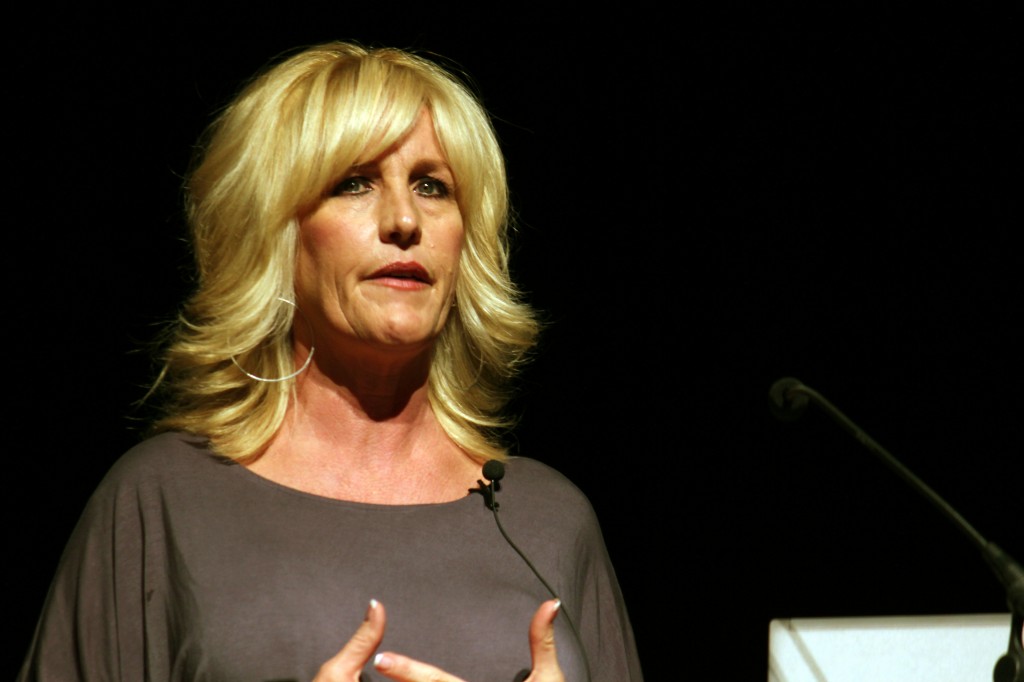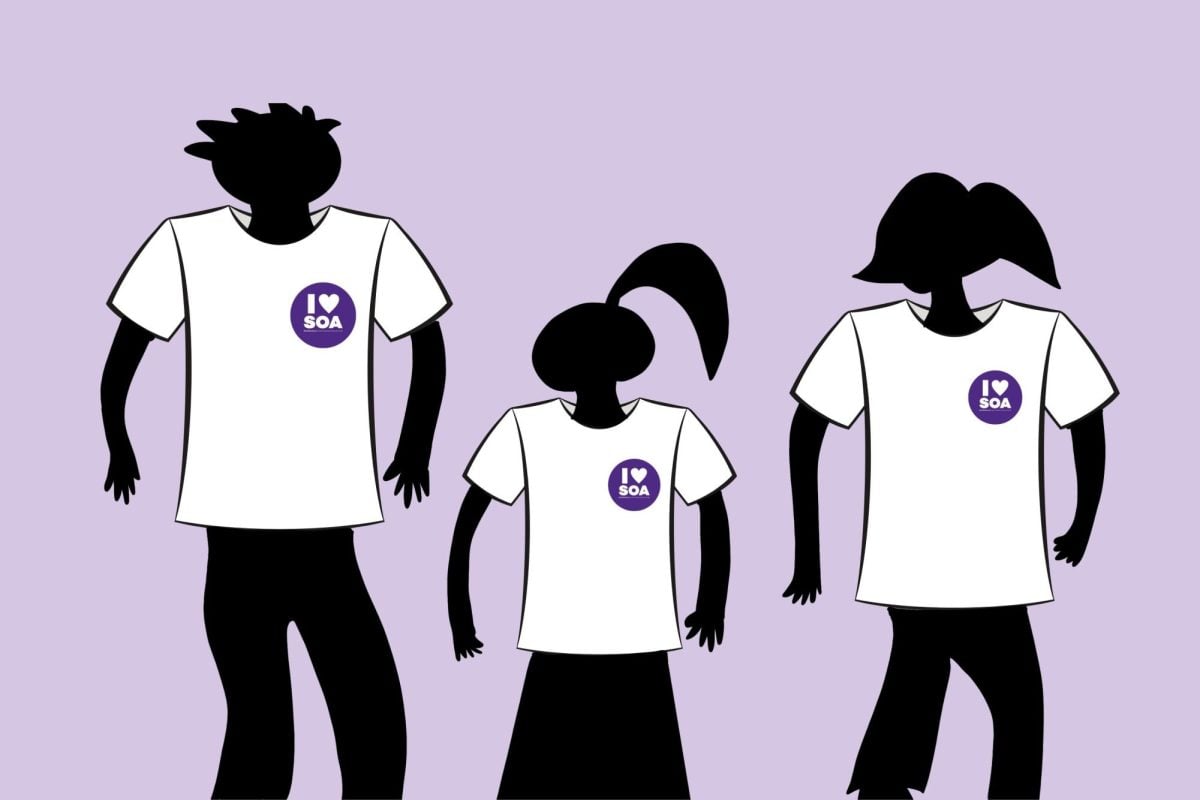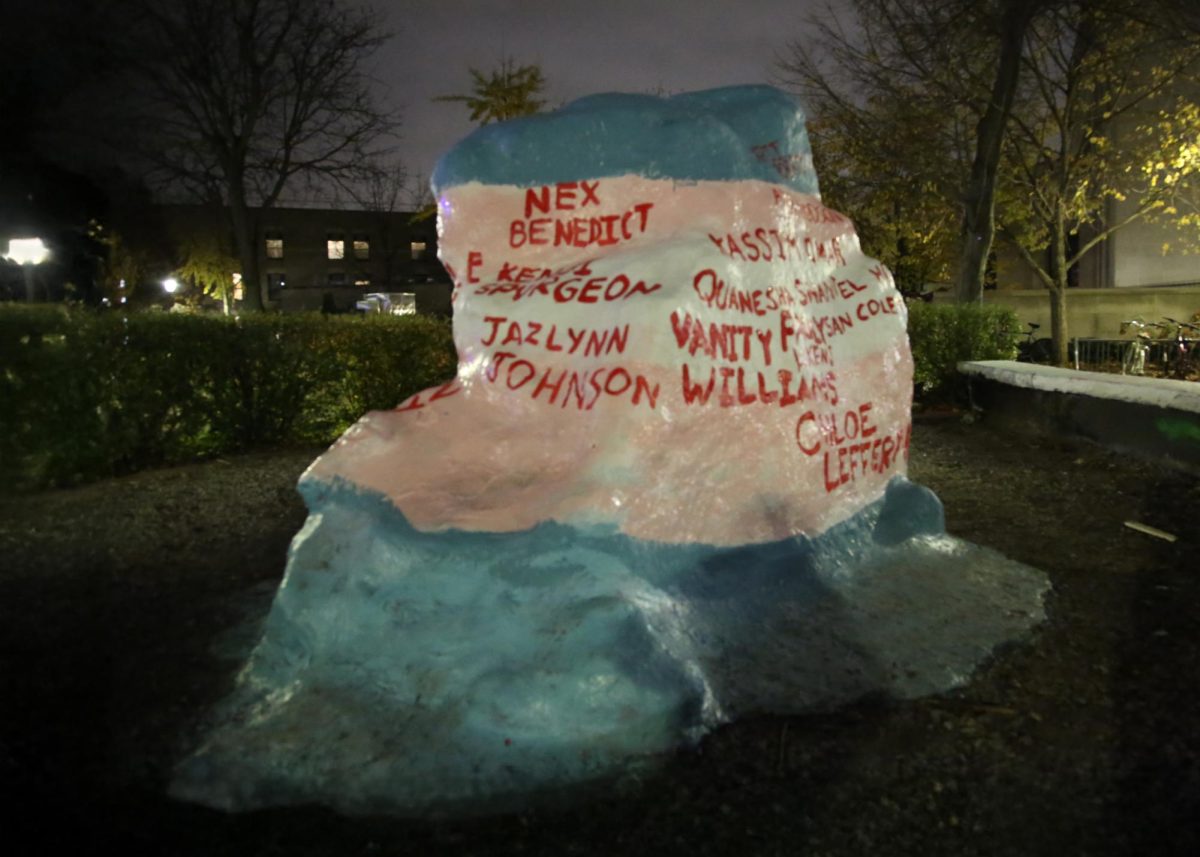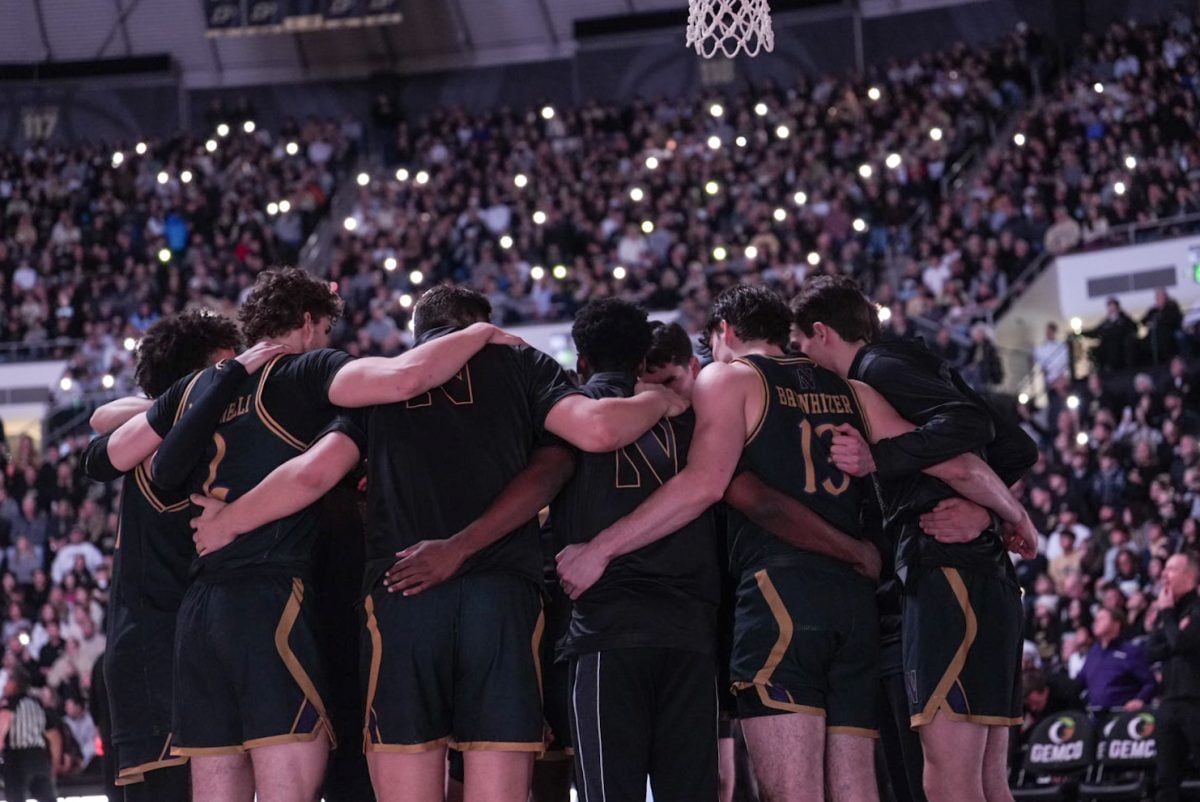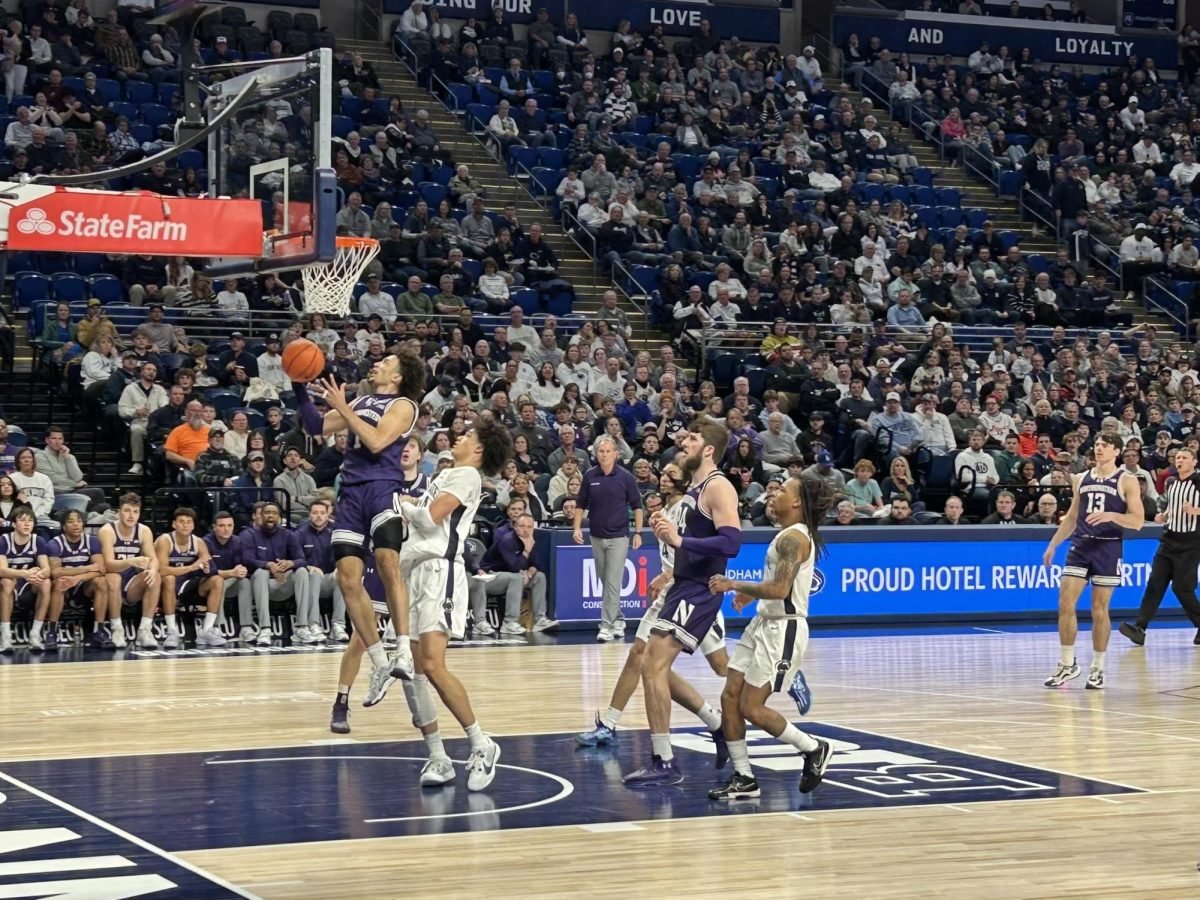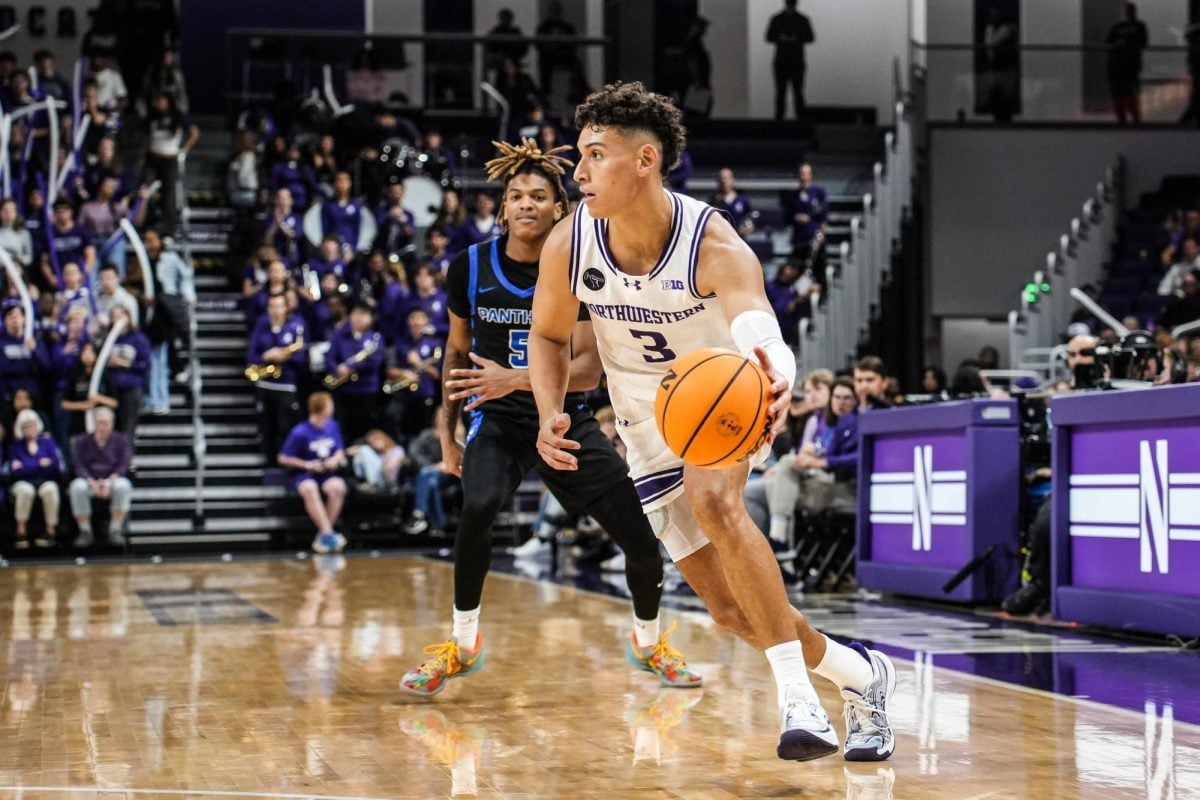Mixing elements of activism with motivational stories, environmental advocate Erin Brockovich encouraged students Wednesday night to take responsibility and become more involved in their local communities.
An esteemed veteran in environmentalism, Brockovich helped launch the investigation of Pacific Gas & Electric Company in the mid-1990s for contaminating the groundwater of the cancer-riddled town of Hinkley, Calif. The case eventually developed into the largest direct-action lawsuit in U.S. history, culminating in the payment of $333 million in damages to more than 600 residents.
Playing off the film “Erin Brockovich,” which gave her national recognition, Brockovich shared she is often confused with her movie character in everyday life when she opened her talk to about 250 people in Cahn Auditorium. She joked she did not end up marrying “the biker dude.”
“In case you didn’t already know, I’m not Julia Roberts,” she said. “I had no idea that this would be so confusing to so many people 12 years later.”
Throughout her hour-long speech, sponsored by Students for Ecological and Environmental Development, Brockovich talked about the “real disconnect” between people and the environment, as well as between residents and their own communities.
The global “water crisis” demonstrates how the problem stems from a failure to realize that “the ecosystem, the environment and us as human beings have got to coexist together,” Brockovich said. To drive her point home, she showed the audience a trailer for “Last Call at the Oasis,” a documentary she was recently involved in that highlights how water pollution is destroying the planet’s most valuable resource.
“There’s been a real breakdown in the core value system of this country,” she said. “We could be facing a real crisis.”
Since the movie’s release in 2000, Brockovich has remained active in environmental advocacy. After receiving tens of thousands of emails every month from people reporting the environmental problems in their communities, Brockovich partnered with Google to create the People’s Reporting Registry, a map that pinpoints communities across the country that are experiencing problems like air pollution, water contamination and cancer clusters.
Brockovich cited a long list of cities in Illinois, including Romeoville, Rockford and Decatur, which have all recently suffered ecological hardships.
“I can’t see half of the United States of America,” she said, referring to the map’s red dots representing the environmentally troubled communities. “This is absolutely a problem. We may be missing disease clusters because we don’t track people’s movements.”
Isaac Hasson, fall speaker co-chair for SEED, said Brockovich’s frankness made her connect directly with the students.
“Erin Brockovich is refreshing for her honesty,” the Weinberg senior said. “I think that she really communicated the message with the community that we need to be conscious of industrial waste and how it affects public health.”
Although she emphasized numerous serious issues facing today’s global population, Brockovich also focused heavily on motivating students to use their education to help save the environment. She stressed her “RAM” mantra — realization, assessment, motivation — to explain the personal characteristics necessary for making a real impact.
“It just shows that it doesn’t take a formal degree to raise awareness and make something positive happen in your community,” said Communication sophomore Cory Ryncarz, who attended the event.
Toward the end of her talk, Brockovich circled back to the residents of Hinkley, who banded together to pursue a case against PG&E. She said students can apply a similar approach to environmentalism.
“They didn’t choose to be poisoned,” she said. “But once they found out, they made a choice to do something about it. And that was the game changer.”
